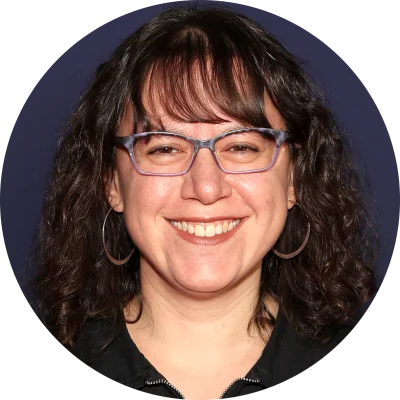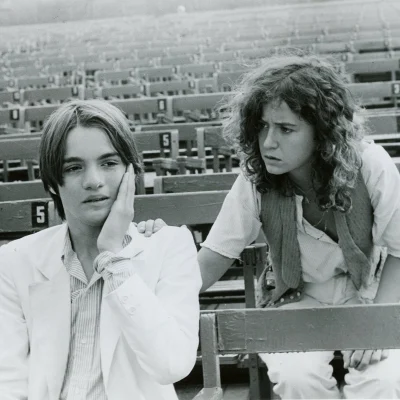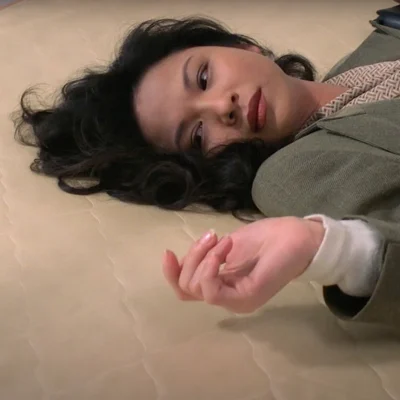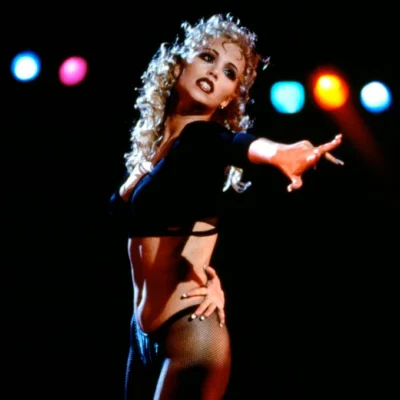
Laure de Clermont-Tonnerre has no interest in being an idle consumer of cinema. She wants to commit herself, mentally, emotionally, and physically, to a film's journey. "I feel like now, sometimes you have all the information in the first 10 minutes, and I hate that," she says. "What I love is just being, discovering, and taking the time."
De Clermont-Tonnerre began her own career as an actor in her native France, working with directors like Luc Besson, Raúl Ruiz, and Julian Schnabel, before stepping behind the camera herself. In 2019, she wrote and directed her debut feature, The Mustang, which won the Bingham Ray Breakthrough Director Award at the Gotham Awards.
Now, the filmmaker is taking on one of literature's most controversial novels, with her adaption of D. H. Lawrence's Lady Chatterley's Lover. Both the novel and de Clermont-Tonnerre's film center on the titular Lady Chatterley (played by Emma Corrin) as she strikes up a torrid affair with the gamekeeper of her husband's country estate. The novel was once banned for its explicit descriptions of the sex, which the director naturally refused to shy away from.
Ultimately, de Clermont-Tonnerre strives to make films that are challenging and all-consuming, which are also the sort of movies that have most moved her throughout her life. Below, she shares with A.frame five of her favorite films and how they have inspired her own approach to storytelling.

Directed by: Wim Wenders | Written by: Sam Shepard and L.M. Kit Carson
This film shaped me so much and moved me so much to the core that, when I wrote my script, The Mustang, which was my first feature film, I realized the character I was writing was very similar to Harry Dean Stanton in Paris, Texas — antisocial, opaque, and slowly his emotions are going to surface, and he is going to warm up and is going to be resurrected to be a human again. There is something about this character that's so moving. So, that's something I feel very interested in, loneliness, fear of connecting, and then eventually facing your trauma.
And then obviously the narration, it’s very contemplative. The script is so good because it's so simple. It's very beautiful writing, and you are discovering the story as he's discovering the story himself, and his discovery of himself and his past and what really happened. I love this way of narrating. I feel like sometimes now you have all [the] information in the first 10 minutes, and I hate that. I love taking the time, and I love the space. And the beginning of it is so mysterious. You just follow a man walking in the desert. There's so many questions. Why is he in the desert? What's happened to him? If you had it at the beginning all, it's just ruining everything.
It's brilliant. One of the most poetic, moving, sensitive and beautiful films that I have ever seen. I would say if I have to pick one film for the desert island, this is the one I will pick.

Directed by: Sergio Leone | Written by: Sergio Leone and Sergio Donati
I remember watching it as a child with my father and I remember the music. It was my first memory as a child of cinema — the Western, the landscapes, the horses, the music. Wow. The first time I saw it, I had fragments of it, like the man and the harmonica, the killing of the family. And then, I watched it again, and again, and again. And each time I was watching it, there was something more that I would just be inspired by.
The beginning of the film is, for me, a masterpiece. Because you follow those four men waiting at a train station, and there's a tension. Something's going to happen, but you don't know what's going to happen, but the tension is going further, and faster, and faster, and faster. The train arrives and there's this huge whistle, and then, the movie really starts. But the first 10 minutes are pure silence, not a word, and the setup is so tense, and so masterfully written and shot. I think it's a masterpiece, as an opening for the film. And obviously I love the story, and think it's very operatic. I love the music. I love the use of the camera. I feel transported when I watch this film, and that's one of the best and most strong experiences of cinema.

Directed by: Julien Duvivier | Written by: Julien Duvivier and Charles Spaak
I love this film, especially because it reminds me of my grandparents. It's about workers in the 1930s in France who win a lottery ticket, and they decide to split it in four and build this restaurant altogether. There's something so utopic about having the equal share and doing something good in common, and obviously it's not going to happen like that. It's reflective of this time where people started to have a little bit more freedom.
I have a master's of history, and I wrote my thesis about the popular society in the 1930s in France through the cinema. So, it was actually the film that I was the most attached to, because it was reflective of this moment of poetic realism. Directors like Renoir, Duvivier, Carné, Grémillon, actors like Jean Gabin, writers like Prévert, all those geniuses together that created the golden age of films in the specific time. And his film talks so much about the feeling of melancholia, the bitter sweetness of life. It's poetry about very, very tough and hard situations. And what I was inspired by is how to use the poetry, how to make [the] ugly beautiful. I think that's what's very masterfully done in this film and in all those films from this time.
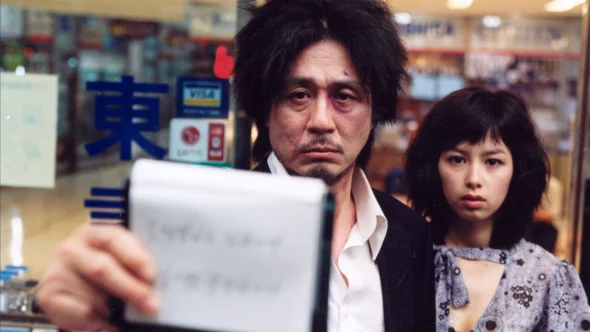
Directed by: Park Chan-wook | Written by: Park Chan-wook, Joon-hyung Lim, and Jo-yun Hwang
It's like a punch in the gut. I like the rawness of it. I like the poetry of the music, with this operatic music over these extremely violent scenes. I remember that I felt, like, beaten at the end of it. But I like being physically invested when I watch a film. And, this one, I've watched it a lot of times. And I cherish it dearly. There's beautiful moments of choreography, and violence, and drama, and thriller, and there's a juxtaposition of genre that makes it so unique.
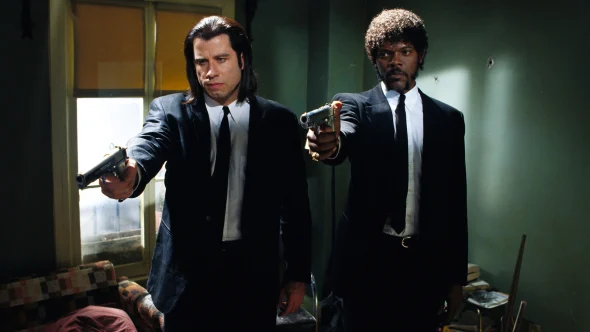
Written and Directed by: Quentin Tarantino
I was actually 12 years old and I was with my father at the Cannes Film Festival, and I really wanted to go and see a film. So, he was like, 'Let's go to see this one.' He had no idea that it was so violent! I watched the film and loved it. I discovered this voice of Tarantino. I remember that I laughed a lot, there's something comedic about it. But definitely his voice and dialogue. And I love the storytelling.
Also, I was so in love with Mia Wallace. This female character felt so strong and was such a beautiful woman. As a child, I don't think I got the part with the drugs because I was too young to understand what she was doing. What I loved about her is the way she moved and the way she danced. It was so joyful; so beautiful to watch. I didn't really understand the dark part of it, but I loved the dancing and the love story of the first act.
It's a spectacle. Tarantino is always a spectacle to watch. I was so young when I watched it, but I had never seen a movie like that in my life. And, at that age, I had seen quite a lot of films. But this one, whoa! It felt like I was just discovering a new universe. For me, it's pure entertainment.
